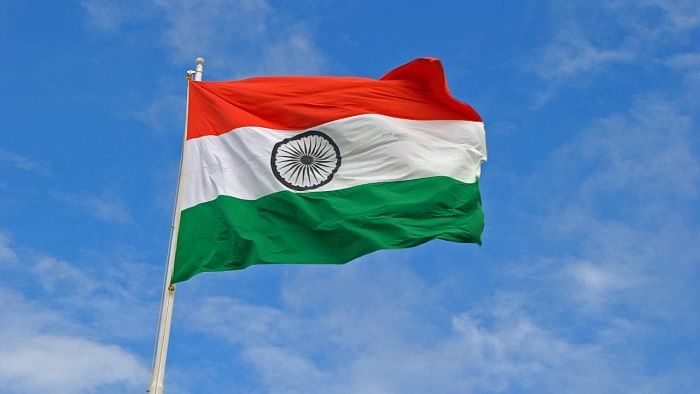
Jamiat Ulema-e-Hind president Maulana Mahmood Madani has claimed that India is the "birthplace of Islam" and asserted that the country belongs to him as much as it does to Prime Minister Narendra Modi and RSS chief Mohan Bhagwat.
Madani said it is wrong to suggest that Islam came from outside, while claiming that the "first Prophet of Islam Adam descended here".
The Jamiat chief appealed to the RSS to urge its affiliates to shun "hate and enmity" and jointly work for making the country the most developed in the world. He also urged both Hindus and Muslims of the country to defy extremism and live with each other in peace.
Also Read: 99% Muslims in India are Hindustani by their ancestry, culture and motherland: RSS leader
Madani's remarks came during his two speeches – one Friday evening and the other Saturday afternoon – during the ongoing annual general session of the Jamiat Ulema-e-Hind (Mahmood Madani faction) here at the Ramlila ground.
"The distinction of this land is that the first Prophet of Islam Adam descended here. This land is the birthplace of Islam and the first homeland of Muslims. Therefore, to say that Islam is a religion that came from outside is completely wrong and historically baseless," he said on Friday.
"This is our country. As much as this country belongs to Narendra Modi and Mohan Bhagwat, it belongs to Mahmood. Neither Mahmood is one inch ahead of them nor are they one inch ahead of Mahmood," he said.
Islam is a religion of this country and it is also the oldest of all religions, he claimed.
"The last Prophet of Islam, Muhammad, came to complete the same religion… So, I have no qualms in saying that India is the best place for Hindi Muslims," Madani said.
In his remarks on Saturday, Madani expressed concerns about the alleged increase in incidents of Islamophobia and hate speech in the country.
The Jamiat chief called on the RSS to jointly work with all for making the country the most developed and ideal in the world.
"We want to make it clear here that we do not have any religious or ethnic enmity with the RSS and the BJP, but our differences are based on ideology," Madani said.
"In the current situation, Jamiat appeals to the RSS and its leaders to take practical steps in the light of the current ideas of their leaders and to convince their affiliated organisations to shed the cloak of hatred and sectarianism", he said.
"We have no grudge against the promotion of Santan Dharma, nor should you have any grudge against the promotion of Islam," Madani said.
Madani also stressed that the percentage of people spreading hatred in the country is very small and that the majority is still secular and believes in tolerance.
"In the current dark atmosphere of hatred, we welcome and support all those who are trying to initiate a dialogue and understand each other's ideas in order to foster stronger mutual relations," Madani said.
Mutual negotiation is the solution to all problems, he asserted.
The plenary session of the event is scheduled to take place on Sunday.
According to a release issued by Jamiat on Saturday, the prominent Muslim organisation also passed a 17-point resolution.
Jamiat opposed the efforts to implement a Uniform Civil Code in India, the statement said.
It argued that the UCC will have a direct impact on the country's unity and diversity, and is contrary to the spirit of democracy and the constitutional guarantees given in Articles 25 to 29 of the Constitution.
The Jamiat alleged that the government's efforts in this direction are motivated by "vote-bank" politics rather than the protection of fundamental rights. It called on Muslims to remain steadfast in implementing Islamic Shariah and protecting the rights of women according to Islamic teachings, the statement said.
In its 34th General Session, Jamiat also recommended measures to protect the freedom and autonomy of madrassas
Despite their contributions to the country, a section of society and even some Muslims are spreading misconceptions about madrassas and blaming them for terrorism, Jamiat said.
The meeting recommended various steps to address the situation including utilising the media to correct the "distorted" image of madrassas, protect them from terrorism and anti-national activities and adhering to the laws of the country for their management.
In its resolutions, Jamiat also expressed concern about the alleged rise of Islamophobia and incitement against the Muslim community in the country.
The organisation called for immediate action, including a separate law to give strict punishment to those who spread hatred and incite violence against minorities.
The organisation also warned youth and student organisations to be cautious of anti-patriotic elements and to avoid organisations that propagate extremism and violence in the name of Islam.
"The general session of the Jamiat condemned the Islamophobic campaign carried out by the media," the statement said.
The Jamiat also expressed concern about the protection of Muslim endowment (Waqf) properties and their income.
It raised the issue of alleged "forced evictions" of homeless people, arrests of thousands "in the name of child marriage" and incidents of attacks and "mob lynching" of Dalits and Muslims.